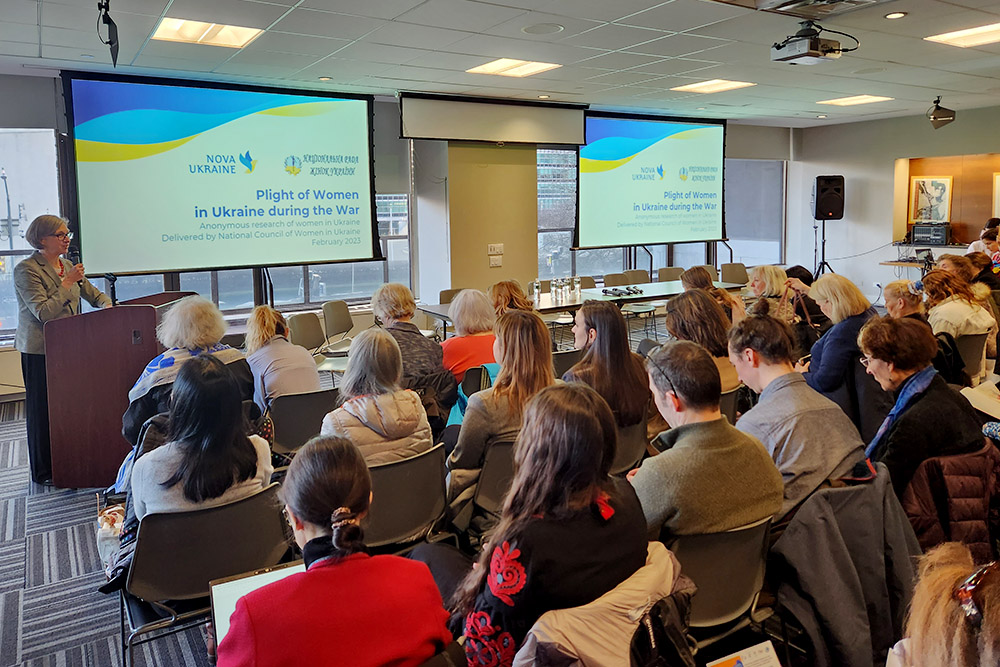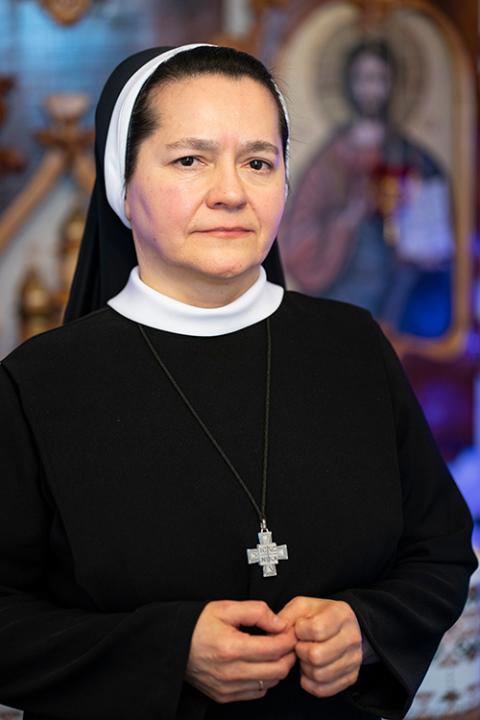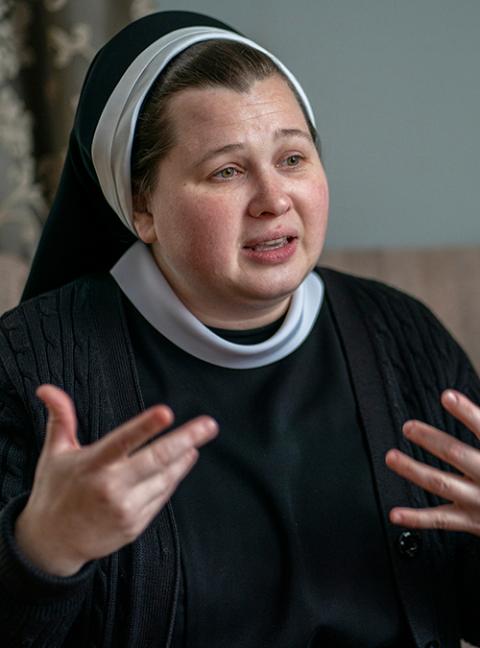
A March 8 meeting during the United Nations Commission on the Status of Women focused on Ukrainian women and how they are faring a year after Russia's full-scale invasion of Ukraine. (GSR photo/Chris Herlinger)
Today is the United Nations' International Day for the Elimination of Sexual Violence in Conflict — a day that focuses attention on the need to end rape and other acts of sexual violence as weapons of war.
This year, as last, there is an understandable focus on sexual violence waged during Russia's full-scale invasion of Ukraine that began on Feb. 24, 2022.
This part of the wider story of war has been a constant. Four months into the invasion, the United Nations' Security Council aired allegations of rape by Russian forces — allegations that Russia, not surprisingly, said are unfounded.
In testimony before the U.S. Congress in April, Ukraine's top prosecutor said rape is part of an intentional effort to sow fear among Ukrainian civilians in Russian-held areas.
And on the eve of the one-year anniversary of the invasion, Yulia Gorbunova, senior researcher for New York-based Human Rights Watch, said, "In the last year, Russian forces have killed, raped, tortured, deported, or forcibly transferred civilians to Russia or Russian-occupied areas."
The headline of her report read: "Justice for War Crimes Is Nonnegotiable."
A similar spirit animated one of the most telling moments I've experienced in covering the war — and it didn't happen in Ukraine but here in New York.
Advertisement
It occurred during the United Nations Commission on the Status of Women, in a session focused on Ukrainian women and how they are faring a year after the full-scale invasion.
The event was held on March 8, International Women's Day, and the mood in the room at the Church Center for the United Nations was by turns affirming — a feeling of women's solidarity was in the air — and yet understandably somber. The invasion had dragged on for more than a year and there were plenty of horrific experiences to recall and remember.
Toward the end of the session, an American peace activist asked what Ukrainian women were doing to promote peace in Ukraine.
There were murmurs in the room, and it was clear that the question had hit a nerve. Though well-meaning — who doesn't support peace, after all? — the question implied that Ukraine, and not Russia, had the responsibility for making peace, and that Ukraine should consider a compromise in which Russia could still claim territory it has held since the earlier 2014 annexation of the Crimean Peninsula.
One member of the assembled panel at the event said that "a peace that will be a compromise is not a real peace," while Anna Olsen, a senior combat medic with the Ukrainian Marines, and a former Ukrainian POW held in captivity by the Russians, said, "Freedom is not free," adding that Russian forces "are trying to break us as a nation."
The spirited fight by Ukrainians is not just about Ukrainian sovereignty, but a fight on behalf of all people committed to freedom, Olsen argued. What is happening in Ukraine, she said, "is a fight for the whole world."
I heard this refrain continually and passionately during my two visits to Ukraine in November of last year and in February of this year. While praying for peace and horrified by the human cost of the war, civilians, Catholic clerics and sisters all agreed that they can't support a peace that accedes to Russian territorial gains.
"From the first day, I have believed we will win and that it will be a victory for the whole world," said Sr. Yanuariya Isyk, a member of the Sisters of the Order of St. Basil the Great whose ministry is based in the Ukrainian capital of Kyiv.
"It's a fight with evil," she told me in a February interview. "And the truth will win out."
A fellow member of the congregation, Sr. Anna Andrusiv, agreed, telling me that arguments about a peace that locks in Russian gains is not a true peace.
"Putin and Russia will not give us peace," she said. If they "give us two years of 'peace,' they will come back again."
She noted that even before recent events, many Ukrainians based their suspicion of Russia on the Ukrainian experience during the rule of Joseph Stalin, when thousands of Ukrainians were exiled to Siberia while millions died in a deliberate Soviet-engineered famine known as the Holodomor.
That's one dynamic. The issue of rape and sexual violence is another, and it is a sensitive one. None of the sisters I met on my travels spoke of ministering directly to women who have experienced such assaults.
But reading between the lines — one sister spoke of women "telling us of their experience with Russian soldiers" — it's hard not to feel that, just below the surface, lie experiences of violence, menace and violation.
Those experiences are one reason I think the audience at the Commission of the Status of Women event expressed visible unease about the peace issue. Martha Kichorowska Kebalo, main representative of the World Federation of Ukrainian Women's Organizations at the United Nations, reiterated that she and others believe that Russia's use of rape and sexual violence are part of a deliberate war strategy that will forever shadow Ukrainians' view of their Russian neighbor.
"As long as there is occupied territory," she said at the March 8 event, "we can't rest."
One sexual abuse survivor named Iryna, spoke at both the March 8 event and an earlier March 6 gathering at the Ukrainian Institute of America. She has become an activist on behalf of women affected by conflict-related sexual violence in Ukraine, and helped form, in 2019, a network of survivors of sexual violence.
Iryna said that women in Ukraine who have experienced such violence are becoming less hesitant to discuss their experiences and, as a result, are joining in solidarity together.
Her own activism stems from her experiences as a survivor from the earlier 2014 Russian invasion of Ukrainian territory. Iryna called her healing part of a process in which she "tried to pull myself out of an abyss."
Iryna said she came to the meetings in New York with a message for the assembled international body: "Please do something so that these types of crimes will stop."
That plea was reinforced by an important ally: Ukraine's ambassador to the United Nations, Sergiy Kyslytsya. He told the March 6 gathering that there is a long, tragic history of the use of rape in war, throughout Western and non-Western history.
"It touches every country in conflict," Kyslytsya said. "We need a global solution to this problem."
For the sake of true peace — and for the sake of women caught in conflict zones, both in Ukraine and elsewhere — let's hope those in power will heed that call.









